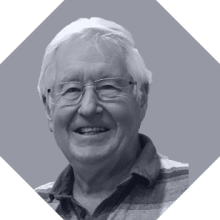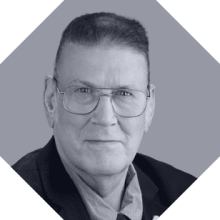Our Team
The Scientific Advisory Board

Professor Joseph Pollard
Dr. A. Joseph Pollard is Professor Emeritus of Biology at Furman University in Greenville, South Carolina, USA. He received his Bachelor of Science in Botany from Duke University (USA) in 1977, and his Ph.D. in Botany from the University of Cambridge (UK) in 1981. His research investigates tolerance and accumulation of heavy metals by plants, with emphasis on the genetics, ecology, and evolution of variation within species. He has studied hyperaccumulator plants in Europe (Great Britain and the Iberian Peninsula) and in North America, with a current focus on the Neotropics (Mexico and Central America).

Professor Alan Baker
Alan Baker was Turner Chair Professor of Botany (Ecology and Environmental Science) at The University of Melbourne, Australia from 2000-2008 where he headed the Applied Ecology Research Group in the School of Botany. His Lab was involved in restoration and revegetation projects of mineral wastes, remediation of contaminated land, in addition to carrying out fundamental research on heavy metal uptake and hyperaccumulation and on the development of novel phytotechnologies for soil remediation and phytomining. On retirement from the University of Melbourne he was made an Honorary Professorial Fellow in the School of BioSciences. He is also an Honorary Professor in Centre for Mined Land Rehabilitation in the Sustainable Minerals Institute at The University of Queensland. In 2009 he was awarded a DSc degree from the University of Sheffield, UK where he also remains an Honorary Professorial Fellow. Since his formal retirement, he has continued to actively engage in research into the discovery of new hyperaccumulator plants worldwide and their applications in the further development of agromining for metals and metalloids. He is a Founder Member of the UK Chartered Institute of Ecology and Environmental Management; elected Fellow 2004 (FCIEEM). In addition to extensive work experience in Europe, Australasia and the USA, he has worked in many developing countries including The Philippines, Thailand, New Caledonia, Sri Lanka, India, PR China, Democratic Republic of Congo, Brazil, Costa Rica, Guatemala, Cuba, Chile and Mexico; and in N. Africa: Egypt, Tunisia and Morocco. He is the author/co-author of over 250 scientific papers and articles

Dr. Rufus L. Chaney
Dr. Rufus L. Chaney is an Environmental Agronomist. He retired from USDA-Agricultural Research Service in 2016 after 47 years of basic and applied research on trace elements in soils, plants and animals. He conducted research on the fate, food-chain transfer, potential effects, and remediation of hazards from soil microelements: 1) plant uptake of metals and translocation to edible plant tissues; 2) speciation of metals in plants and their bioavailability to animals; 3) development of hyperaccumulator crops to phytomine and recycle metals in contaminated and naturally mineralized soils; and 4) potential methods to reduce food-chain transfer or toxicity of metals in organic resources and potential regulatory approaches to protect food safety and soil fertility. He conceived the concept of phytoextraction and phyto/agro-mining in 1988 and led a cooperative project to develop a full nickel phytomining technology, from seed to recovery of Ni metal by pyrometallurgy. He conducted basic research to characterize the uptake, translocation, tolerance, and chemical speciation of Ni in several Odontarrhena Ni hyperaccumulator species. Since beginning his career in 1969, Dr. Chaney has 517 published papers (365 Peer Reviewed) based on his research. He has cooperated with the US-EPA, the US-FDA, the OMB and many States in preparing advice and regulations for utilization of biosolids and remediation of metal contaminated soils. He assisted the US-DoE-ARPA-E scientists evaluate potential for Ni agromining in the US using improved hyperaccumulator species for which seeds are not dispersed in the environment and to improve recovery of Ni from the biomass. He is an advisor to Botanickel in commercialization of Ni agromining in several nations.

Professor Mark Aarts
Prof Aarts is Chair to research genetics of plant adaptation to the abiotic environment. Research topics are the role of photosynthesis in plant stress response and abiotic stress adaptation, and plant adaptation to heavy metal (exposure. Heading a research group of between 6 and 12 post-docs and PhD students. He is chair of the executive board of the Netherlands Plant Eco-phenotyping Centre, a national large-scale research infrastructure (npec.nl). He is involved in BSc/MSc Plant Sciences, Plant Biotechnology, Biology, Biotechnology course teaching, course coordinator of the Plant Biotechnology course. The research interests of his group concern the evolution of plant adaptation to the abiotic environment. He is especially interested in two topics, understanding the (variation for) regulation of zinc homeostasis in plants and identification of the natural variation underlying efficiency of photosynthesis under the influence of environment. An extreme case of aberrant regulation of zinc homeostasis is found in Noccaea caerulescens, a zinc/nickel/cadmium hyperaccumulating relative of Arabidopsis, for which he and his group determined the whole genome sequence. Evolution of metal hyperaccumulation in N. caerulescens is studied using population genomics and quantitative genetics, supplemented with mutant screens and gene function analysis molecular genetics. Current focus is on the role of copy number variation in the rapid adaptation to high zinc and/or cadmium exposure.

